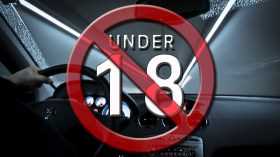
Source: This image was created for netivist.org. If you want to use it you simply need to attribute it by linking to this page or to https://netivist.org. Thanks
Should I lease a car or buy it? We discuss the advantages and disadvantages of leasing a vehicle and the differences between a car lease and car rental. Share your experiences and help other consumers decide what is the best option.
What is a "lease"?
A lease is a legal contract under which one party agrees to rent property of another party. This agreement guarantees the "lessee" (renter) use of an asset, usually a car, building or business equipment, and guarantees the "lessor" (property owner) regular payments from the lessee during a clearly defined number of months or years. The lessee also agrees to abide to some specified conditions regarding the utilization of the property, vehicle or equipment. The lease agreement is an increasingly popular alternative to traditional financed purchases.
There are some usual elements in lease agreements:
- Names of parties
- Identification of the property or vehicle (address, model, plate, serial number, etc.)
- Startng date and duration of the contract
- Conditions for renewal
- Provisions for a security deposit
- Need to provide insurance
- Party in charge of maintenance
- Restrictions to use
- Termination clause
Car lease vs car rental
Leasing a car is not exactly the same thing than renting a car. These are the most important differences between leasing and renting vehicles:
- The provider or renter in the case of a lease is usually a car dealership, while rented cars usually come from car rental agencies.
- The time frame of use is one on the major differences between a car lease and car rental. Leasing involves a longer term commitment. Car rental services are usually used for short periods and the rented vehicle is just meant to temporarily replace your primary vehicle. Leased cars usually become the primary vehicle for the lessee.
- Insurance is normally a requirement for leased automobiles. Dealerships require the lessee to buy full coverage insurance including collission and theft. Car rental agencies typically offer optional insurance services.
- Leasing agreements usually offer the lessee the possibility of owning the car at the end of the lease. This is referred to as a lease-to-own agreement. Rental agreements do not allow rentees to buy the car.
Brief history of leasing
The first record of equipment leasing dates was found in the Summerian city of Ur about 2010 B.C. Farmers leased agricultural tools from government officials. In ancient Babylonia, Egypt, Greece and Rome people leased property too. Vehicles have also been leased since ancient times. Short term and long term ship charters became a popular practice since the time of Phoenicians. These could be equated to operating leases and net finance leases respectively.
Leasing was not initially recognized under common law. In England for centuries possession implied ownership. English courts eventually developed laws of bailment and personal property leases became known as "hire purchase agreements" or "bailments for hire". In the U.S. leasing was initially associated with means of transportation. For instance the lease of horses, buggies, barges, locomotives and wagons became usual during the eighteen and nineteen century.
Car rental can be traced back to 1918, when Walter Jacobs created Rent-A-Car with 12 Model T Fords. In 1941, Zollie Frank initiated a business of long-term car leasing. Ever since car lease on individual and fleet basis has gradually grown and adapted to the changing regulation. Lease experienced a drop during the financial crisis triggered in 2007, but it has recently grown again and reached record levels. Lease penetration is at its highest historical level in the United States, representing 26.5% of retail sales. Lease is most popular with import cars and has lower prevalence among cars manufactured in the U.S. The lease penetration rate for BMW and Mercedes-Benz are above 50%.
Pros and cons of leasing a car
If you are considering whether you should lease or buy a car, it is important to take into consideration the pros and cons of each option. There typical advantages of leasing a car vs buying a car:
- Lessee can more often drive new and different models of cars since they can change the vehicle as soon as the lease expires.
- For the lessee payments are usually lower than the payments on a car loan made by a buyer.
- It is easier to qualify for a lease contract than for a car purchase loan.
- For the leassor "sales" tax are due only on each monthly payment, whereas in a sale all taxes are owe immediately on the entire purchase price or loan.
- The lessee does not have to worry about the depreciation of the value of the car.
- The lessee does not need to find a buyer for the car, simply return it to the dealership after the agreement expires.
- Usually the lessee doesn't have to worry about repair costs of the car or about potential faulty vehicles.
- For the lessor, an automobile lease generates a steady income and the possibility to lease again or sell the car after the contract is expired.
- Lessees usually become repeat custormers. Usually the relationship between the car dealership and a lessor is stronger than that with a buyer, who may only be customer again several years later.
However, several disadvantages of leasing a car should also be taken into account:
- Leasing typically costs more than an equivalent loan.
- With a purchased vehicle the longer you keep the car the most cost effective remains. In case of lease you never finish paying the loan.
- Sometimes leasing companies ask for a very big initial deposit, which can be a problem for some lessees.
- Some contracts define a mileage in order to calculate the residual value of the car at the end of the lease. If the lessee is considering the purchase the vehicle at the end of the lease period, she or he should make sure the mileage is properly defined and the limitations or provisions in case of going over the milage limits are not very draconian.
- Lessors that need to get out a lease before it expires can be forced to pay thousands of dollars in early termination fees.
- If the user is not very careful she/he may incur in very high wear-and-tear charges when the car is returned to the dealership.
- Lessees are not allowed to customize their cars in any permanent way.
- A lease agreement can be confusing. Some people find very complicated the provisions and this could lead to misunderstandings and payments which may be higher than expected initially.
Have you ever leased a car? If so, were you satisfied with it? Would you recommend lease or buy?
If you change your mind, you can change your vote simply by clicking on another option.
New to netivist?
Join with confidence, netivist is completely advertisement free. You will not receive any promotional materials from third parties.
Join the debate
In order to join the debate you must be logged in.
Already have an account on netivist? Just login. New to netivist? Create your account for free.


















